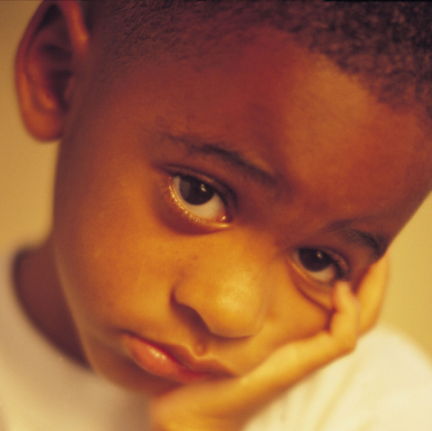
The imprisonment of parents/guardians is shown to have a harmful effect on a child’s life. A significant portion of the individuals incarcerated in state and federal prisons are parents of young children. The interruption of the parent/guardian-child relationship can potentially cause issues for children at a school, health, and judicial level. Prior research shows that an estimated two out of every five children above the age of 2, whose parents have been arrested, has about twice the rate of emotional and behavioral problems than the general population. The researchers conducted the current study to gather a better understanding of how exactly exposure to arrest affects a child’s mental health. The researchers also had to assess the child’s exposure to potential traumatic events, since they are associated with higher levels of emotional and behavioral problems as well.
Though there is not much known on how school-aged children and adolescents experience arrest, prior research shows that a child’s age and cognitive development plays a part in their outcome. Younger children do not have the same coping skills as an older child due to developmental differences. The disruption of secure relationships with the parent/guardian interferes with the younger child’s ability to develop trust and autonomy.
The study sampled two communities in the Northeast United States where the families were searching for mental health and developmental testing along with specific interventions services for their children. There was a total of 326 children in the study, ages ranged from birth through 11 years of age, whose caregivers were asked to complete several questionnaires and assessments. The data collected contained information regarding: arrest history, demographics, child emotional and behavioral problems, parental stress and interaction, and potential traumatic exposures. The overall sample of children was mostly male (74%) and white (61%), with an average age of 5.74 years. The 65 children exposed to arrest were slightly older (6.39 years), from families with fewer monetary resources, and were more racially/ethnically diverse.
Contrary to speculation of a child’s symptom being the product of other traumatic experiences in place of the arrest itself, the current study shows that children who had exposure to arrest have more impairments in internalizing (forming attitudes and behaviors into ones nature ) and externalizing (express through actions) behaviors than those who did not. The youngest children who were exposed to arrest (aged between birth and 3 years old) had more internalizing problems as opposed to the older children (aged between 7 and 11 years old) who had greater externalizing problems. The study also showed that children that were exposed to the arrest of a family member were also more likely to have been exposed to other types of potential traumatic experiences, which includes events such as accidents, physical and sexual abuse and domestic violence.
The research implies that practice and policy changes should be implemented to relieve the negative effects of children’s exposure to arrest. Some model programs have already been rolled out with these ideas in mind, such as REACT: Supporting Children when a Caregiver is Arrested at the Child Health and Development Institute of Connecticut and the Child Development-Community Policing Program in New Haven, Connecticut. This study highlights the need for institutional changes to recognize the arrest of a parent as a potentially traumatic experience for a child, appropriately address the issue, and train relevant service people (i.e. police, health/human services). Particular attention should also be given to the child’s stage of development.
Written by Gregory McDaniel and Buddy Toth, Visiting Students in Research.